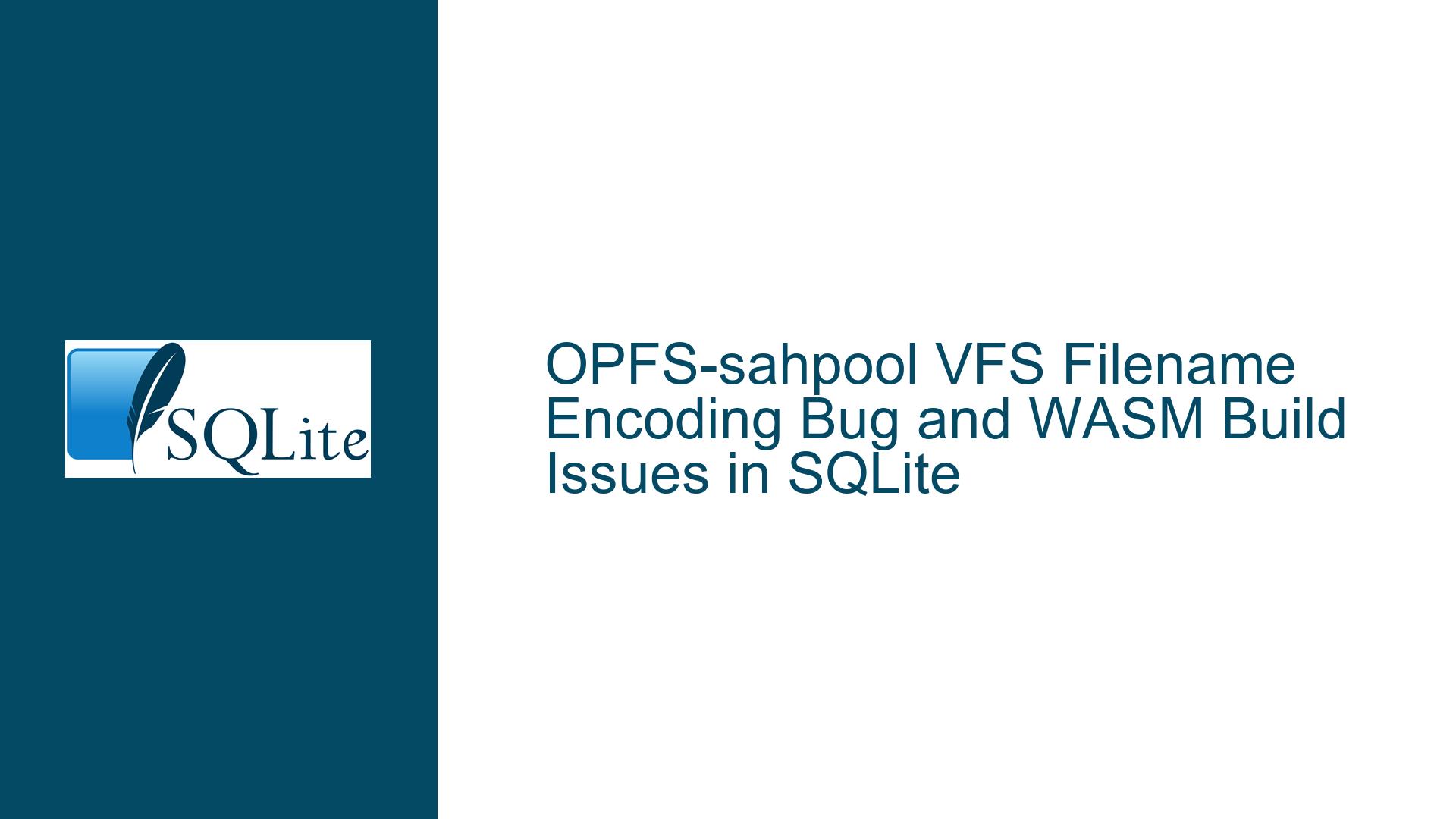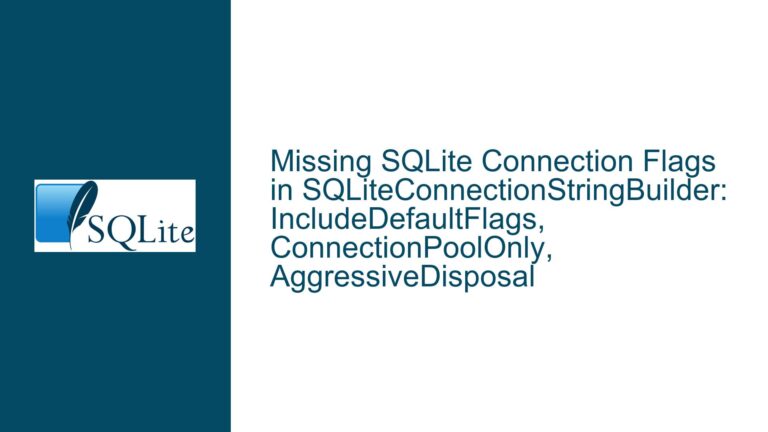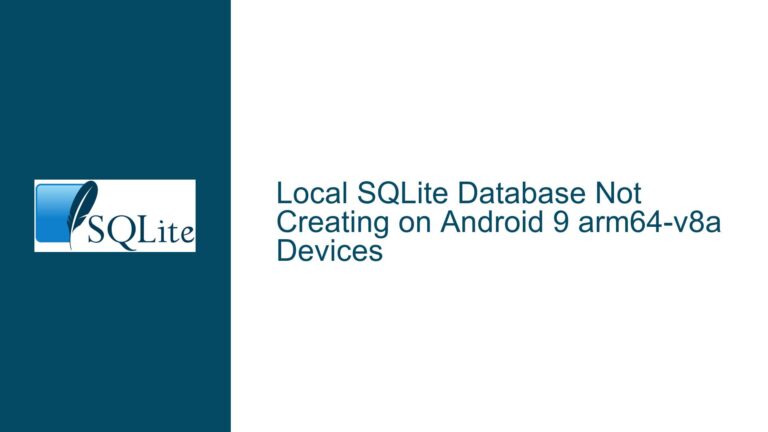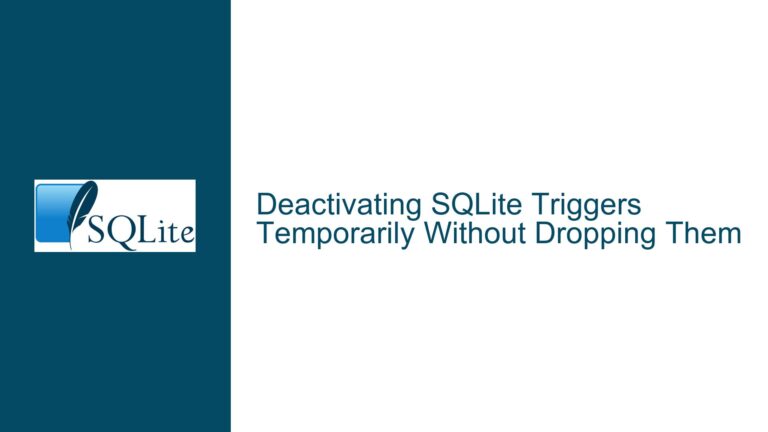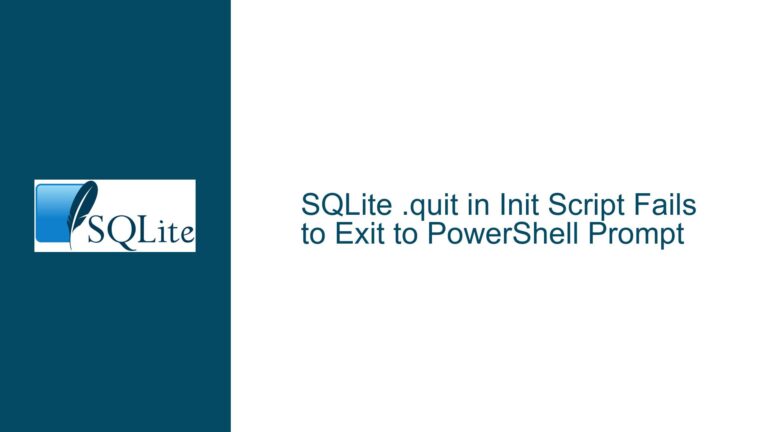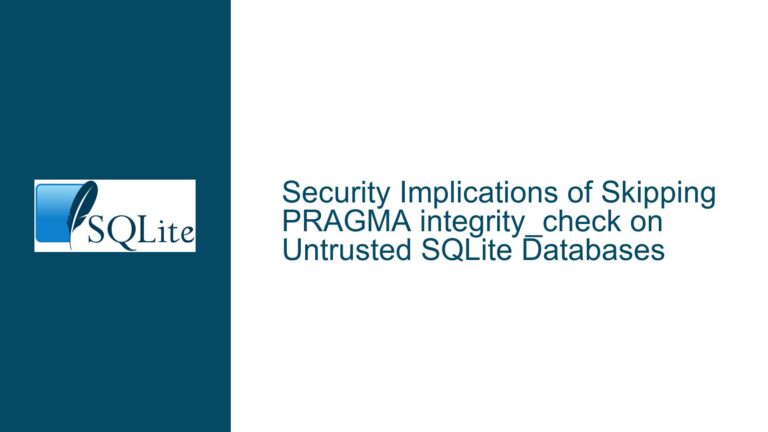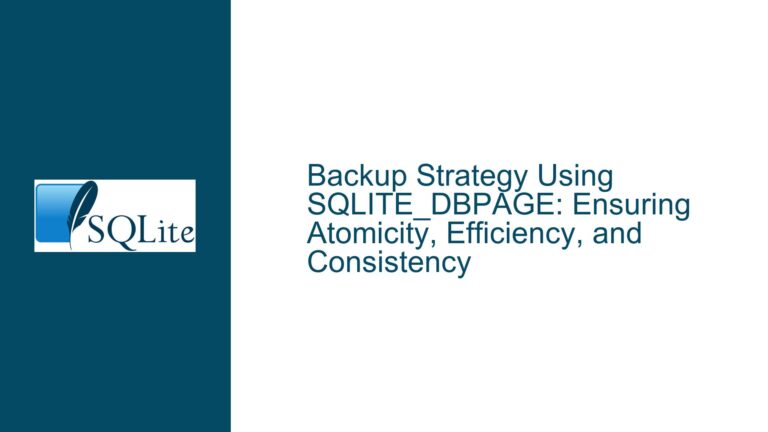OPFS-sahpool VFS Filename Encoding Bug and WASM Build Issues in SQLite
Issue Overview: OPFS-sahpool VFS Filename Encoding Bug and WASM Build Challenges
The core issue revolves around a bug in the OPFS-sahpool VFS (Virtual File System) implementation in SQLite/WASM, specifically related to filename encoding when files are reused from the SahPool. When a file is returned to the pool and later reused for another database, the new filename is encoded and written to the file. However, the encoding process fails to include a null termination character (0x0), leading to filename corruption. For example, if a file initially associated with someexamplename.sqlite is reused for a shorter name like hello.sqlite, the encoded name becomes hello.sqliteame.sqlite, where ame.sqlite is a remnant of the previous filename. This corruption causes several side effects, including databases becoming inaccessible after a page refresh, exhaustion of the SahPool, and even crashes due to duplicate encoded filenames.
Additionally, the discussion highlights challenges with the WASM build process, particularly when integrating the SQLite/WASM build into a project using Webpack. A specific issue arises with duplicate export default statements in the generated sqlite3-bundler-friendly.mjs file, causing Webpack to fail. This issue is compounded by differences in how sed and grep behave across platforms (e.g., macOS vs. Linux), leading to inconsistencies in the build process.
Possible Causes: Filename Encoding and Build Process Inconsistencies
The filename encoding issue stems from the reuse of a buffer for encoding filenames without properly null-terminating the new filename. This results in residual data from previous filenames being concatenated with the new filename, leading to corruption. The root cause is the decision to reuse a buffer for the lifetime of the object, as opposed to using scope-local buffers that are zeroed out upon initialization. This design choice, while efficient, introduces the risk of residual data contamination.
The WASM build issue is caused by the build process attempting to remove duplicate export default statements using sed and grep. However, the behavior of these tools varies across platforms. On macOS, the -i flag for sed requires an extension argument, which is not the case on Linux. This discrepancy leads to build failures on macOS, as the -i flag swallows the subsequent argument, causing the build script to malfunction. Additionally, the build process relies on GNU-specific features of sed and grep, which are not universally available, further complicating cross-platform compatibility.
Troubleshooting Steps, Solutions & Fixes: Addressing Filename Encoding and Build Issues
To address the filename encoding issue, the SQLite development team has patched the trunk to ensure that filenames are properly null-terminated when encoded. This fix prevents residual data from previous filenames from contaminating new filenames. Developers using the OPFS-sahpool VFS should monitor the trunk for this patch and apply it to their builds. Additionally, developers should be aware of the potential for side effects when reusing buffers for filename encoding and consider using scope-local buffers to avoid similar issues in the future.
For the WASM build issue, the SQLite team has revised the build process to avoid platform-specific dependencies on sed and grep. Instead of using sed -i, the build script now employs a platform-agnostic approach using awk to remove duplicate export default statements. This change ensures consistent behavior across different operating systems. Developers encountering build issues on macOS or other non-Linux platforms should update their build scripts to use the revised approach. The following awk command can be used to remove duplicate export default statements:
awk '/export default/ && !f{f=1; next} 1' $@ > [email protected] && mv [email protected] $@;
This command ensures that only the first occurrence of export default is retained, resolving the Webpack error.
Furthermore, developers should be cautious when integrating SQLite/WASM into projects using Webpack or other bundlers. The SQLite team has acknowledged the issue with duplicate export default statements and has rolled back the change that introduced them. Developers should ensure they are using the latest trunk build to avoid this issue. If the issue persists, manually removing one of the duplicate export default statements in the generated sqlite3-bundler-friendly.mjs file can serve as a temporary workaround.
In summary, the filename encoding bug in the OPFS-sahpool VFS and the WASM build issues highlight the importance of careful buffer management and cross-platform compatibility in software development. By applying the provided fixes and monitoring the SQLite trunk for updates, developers can mitigate these issues and ensure a smooth development experience with SQLite/WASM.
